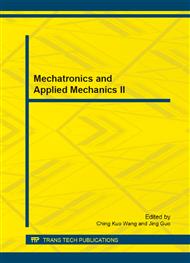p.916
p.920
p.924
p.928
p.932
p.938
p.942
p.950
p.955
Study of Thermal Management System for a Series-Parallel Hybrid Electric Vehicle Using Numerical Simulation
Abstract:
Advanced thermal management system (TMS) has the potential to increase the life of the vehicle’s propulsion, and meanwhile, decrease fuel consumption and pollutant emission. In this paper, an advanced TMS which is suitable for a series-parallel hybrid electric vehicle (SPHEV) is presented. Then a numerical TMS model which can predict the thermal responses of all TMS components and the temperatures of the engine and electric components is developed. By using this model, the thermal response of the TMS over a realistic driving cycle is simulated. The simulation result shows that the TMS can fulfill the heat dissipation requirement of the whole vehicle under different driving conditions. It also demonstrates that a numerical model of TMS for SPHEV is an effective tool to assess design concepts and architectures of the vehicle system during the early stage of system development.
Info:
Periodical:
Pages:
932-937
Citation:
Online since:
February 2013
Authors:
Price:
Сopyright:
© 2013 Trans Tech Publications Ltd. All Rights Reserved
Share:
Citation:


